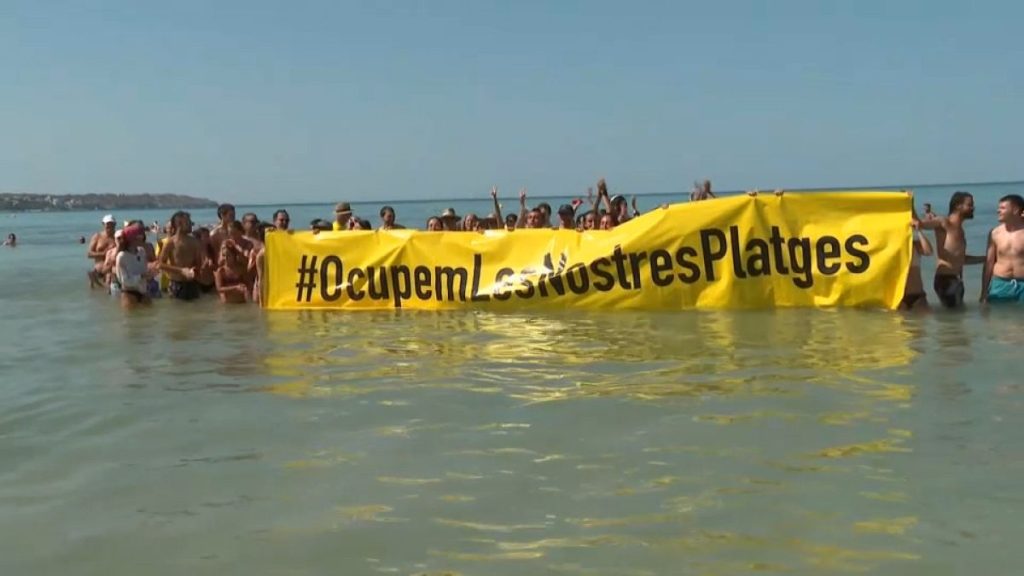Mass tourism has had a negative impact on the residents of Mallorca, leading to a decrease in their quality of life. Issues such as a lack of affordable housing, overcrowded healthcare facilities, and disrespectful behavior by tourists have driven locals to protest against the authorities. Last year, residents placed fake signs on beaches warning tourists to stay away, and this year, protesters from the ‘Occupem Les Nostres Platges’ movement gathered on S’Arenal beach to call for stricter limits on tourism. With a record-breaking 14 million foreign visitors in 2023 and an eight per cent increase in tourists this year, the situation shows no signs of improvement.
Demonstrators on S’Arenal beach expressed frustration over the invasion of their local spaces by tourists, highlighting the negative impact on their ability to enjoy the area. Residents feel that their beaches are now primarily for the enjoyment of tourists, leading to a sense of exclusion from their own community. The broader consequences of mass tourism, such as the disappearance of local culture, increasing living costs, and deteriorating public services, have also been emphasized by protesters. Despite the economic benefits that tourism brings, there is a growing recognition of the negative social and environmental impacts it has on the island.
In response to growing concerns about overtourism, the Balearic Government has taken steps to address the issue. A joint committee with representatives from the tourism sector and civil society has been established to develop strategies for curbing the impact of tourism. These measures include enhanced controls against illegal tourist accommodation, with the introduction of 27 new inspectors and fines of up to €80,000 for violations. The government acknowledges the need for a balanced approach that preserves the economic benefits of tourism while addressing the negative consequences on the local population.
Residents in Mallorca have become increasingly vocal about their discontent with the current state of tourism on the island. The lack of affordable housing, overcrowded public services, and the erosion of local culture have led to a sense of alienation among residents. Protesters are calling for stricter regulations to limit the number of tourists and protect the rights of locals to enjoy their own communities. As tourism numbers continue to rise, it is essential for authorities to find a sustainable balance that benefits both the economy and the well-being of residents.
The ‘Occupem Les Nostres Platges’ movement and other protests across Europe demonstrate the growing backlash against overtourism and the negative impacts it has on local communities. Residents in Mallorca are demanding that their voices be heard and that measures be taken to address their concerns. With the support of civil society, the tourism sector, and the government, there is an opportunity to find solutions that benefit both tourists and locals. By working together to create sustainable tourism practices, Mallorca can preserve its natural beauty and cultural heritage while supporting the livelihoods of residents.
As the tourism industry continues to expand, it is crucial for policymakers to consider the social, economic, and environmental consequences of mass tourism. The protests in Mallorca serve as a wake-up call for authorities to take action and implement measures that protect the rights and well-being of residents. By promoting responsible tourism practices and sustainable development, Mallorca can continue to attract visitors while preserving its unique identity and quality of life for locals. Collaborative efforts between government, the tourism sector, and civil society are essential to finding long-term solutions that benefit all stakeholders involved.


